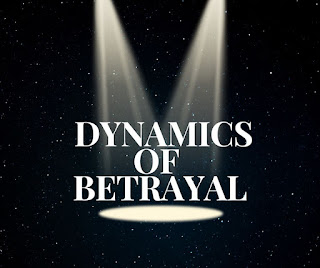Finding Joy in Your Marriage (Week 1: Enhance Your Love Maps)
Finding Joy in Your Marriage
(Couple’s book study)
Week 1: Enhancing Your Love Maps
Dr. Gottman’s book, The Seven Principles for Making Marriage Work begins with a review of his research (p. 1-52). Previously a great deal of advice for married couples was based on what many people thought intuitively must be good advice. The problem is that very little actual research had been conducted to prove that this typical advice for married couples was effective.
Some popular ideas in the 1980’s for improving marriages included improved communication skills, and active listening. Therapies focused on conflict resolutions skills, and dealing with personality problems. These are obviously excellent relationship goals! The problem is, researchers discovered that the typical strategies for improving these areas were completely ineffective.They also discovered some simple actionable behaviors which instead made a big difference!
Gottman and his colleagues set out to study couples in a more scientific way. He set up the Love Lab, an apartment 'laboratory' where Gottman could observe couple's live interactions and measure their responses. Researchers measured heart rates and other autonomic responses. They digitally recorded conversations, and had teams of psychologists analyze emotions and microexpressions.
Over time, they were able to identify couple relationships that were in trouble and others that they called “masters” of relationships, who were thriving. Over decades they were able to identify the key behaviors that were destructive, and those which helped couples to thrive.
A key positive behavior, and the topic of your first discussion with your spouse, is called creating Love Maps.
Sorry guys, but yes, at first glance the term Love Maps does sound like something that belongs with the new Old Spice: Wilderness With Lavender for men. Somehow in my world, lavender and men do not belong together, but maybe I’m just getting old. On the other hand, the words ‘man’ and ‘map’ do seem to go together in a definite boy scout kind of way.
Think about it this way. If you have a close friend, you should know important details about your friend's life. If you don’t, your friendship may be superficial. Gottman calls that part of your brain where you store important personal information about your spouse a Love Map.
In our modern world where maps are embedded in apps on our phones, it is still true that the more detailed the map, the better it is for navigation. Just like a real map, over time maps also need to be updated. Although there is a great deal of continuity, we are each slowly changing and adapting to new situations. Our basic personality will not change, but our feelings and preferences definitely do change over time. Something that was very important to us years ago, may now be a matter of indifference.
After 35 years of marriage, I had a humorous encounter with my wife who for some reason was convinced that I did not like apple pie, and that cherry pie was my favorite. Now in fairness, I may well have thought this way when I was younger. For me this was a good example of how my thinking and feelings have changed over time. Our map of our spouse needs to stay current to be most effective. When do we need a map the most?
“It was a dark and stormy night. . .”
Maps are essential in a stressful situation, this is especially true when we are lost and don’t know where we are going. For some reason, this brings to mind the often mocked opening storyline, “It was a dark and stormy night.” No, this line wasn’t written by Snoopy in his persona as World Famous Author. A map of our partners inner life and feelings will save us during the "dark and stormy night" of our relationship. Couples who have a detailed map of their partner's emotional inner life, are much more likely to adapt and cope well in stressful situations.
Gottman's research has suggested that enhancing Love Maps along with, expressing your fondness and admiration, and accepting bids for connection, are one of three essential components for building a deeper relationship.
Read Chapter 4: p. 53-66, and try to do some of the relationship questions together. The questions are not prioritized. Use the questions to get to know each other. Don't be intimidated if you don't know the answer.





Comments
Post a Comment
Thank you for your comment on the threefoldcord blog. All comments are moderated.